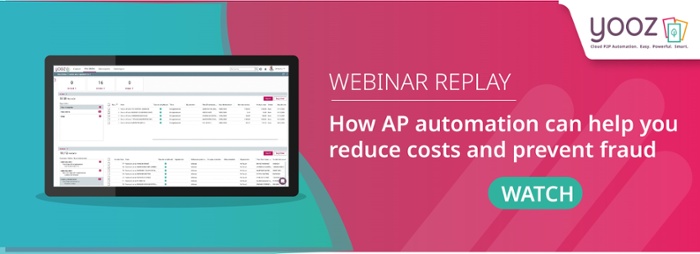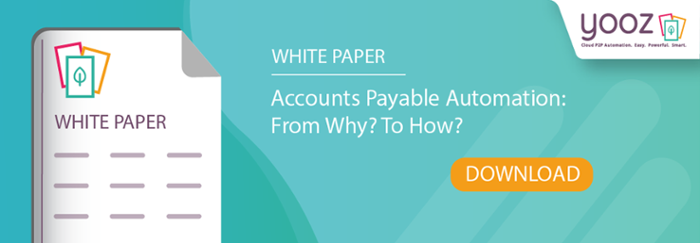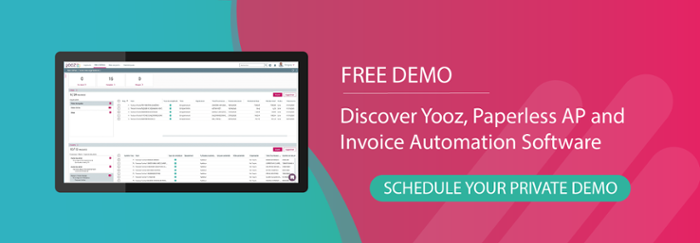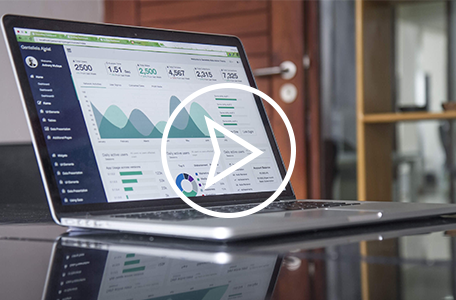In today's dynamic and fast-paced business world, the Accounts Payable payment process plays a critical role in maintaining seamless financial operations and fostering strong supplier relationships. The way that an organisation chooses to manage this process can be a game-changer, influencing everything from cash flow to the company's overall reputation.
Today's business are turning to Accounts Payable automation as the transformative solution and accounting system of choice. By harnessing cutting-edge technologies and streamlined workflows, Accounts Payable (AP) automation revolutionises the traditional invoice handling and payment procedures.
Understanding the Accounts Payable process
The Accounts Payable process, often referred to as the AP process or invoice process, is a fundamental aspect of financial management in business. It involves managing the money owed by a company to suppliers or vendors in return for goods or services and how the company fulfills these short-term payment obligations.
The simple AP process workflow
The AP process itself isn't complicated: the AP department receives the supplier or vendor invoices for delivered goods or services, verifies their accuracy, processes the payments owed, and eventually pays them according to the agreed-upon payment terms.
An efficient AP process is crucial
An efficiently managed AP process is crucial for maintaining a full balance sheet and healthy cash flow, building strong relationships with vendors (perhaps gaining better payment terms), ensuring prompt payments, and reinforcing the company's reputation. These processes are vital for the smooth functioning and financial stability of any organisation.

Addressing challenges in the invoice process
Despite its significance, the AP process can present several challenges, particularly in manual-based workflows. These obstacles can hinder efficiency, negatively impact cash flow, and strain crucial supplier relationships. Let's explore some of the most common challenges faced in the Accounts Payable cycle:
-
Manual processing
Traditional AP processes rely on manual handling of invoices, a labour-intensive and resource-draining task that consumers valuable time and financial resources. This manual approach is prone to human errors, such as duplicate entries or missing documents, and may even expose the company to financial risks and potentially fraudulent financial submissions.
In addition, the paper-intensive approach is often slow, leading to delayed payments and strained supplier relationships.
-
Paper-based workflows
Many businesses still rely on paper-based systems for invoice processing, resulting in a slow and unwieldy. Paper invoices must be input into the system, moved by hand through the invoice workflow, and can easily be misplaced. Each and all can cause delays in approvals and payments.
Moreover, the paper-based process is more expensive and time-consuming, requiring storage, filing, and searching. -
Invoice approval bottlenecks
In larger organisations, obtaining the necessary invoices approved by the right stakeholder can become a bottleneck. Delays in approvals can result in late payments and strained relationships with suppliers. -
Lack of visibility
A manual AP process may lack real-time visibility into invoice status and payments, making it challenging to adhere to deadlines and accurately track the company's financial obligations. -
Inefficient dispute resolution
Resolving any disputes regarding invoices, such as incorrect charges or goods not received, can be cumbersome and slow in manual processes, leading to delayed responses and payments. -
Compliance and security concerns
Maintaining compliance with regulatory requirements and ensuring data security is challenging in manual-based processing, potentially leading to legal issues. This can be particularly complicated for organisations conducting business internationally. -
Late payments and penalties
Inefficient AP processes may result in late payments to vendors, leading to penalty charges and a negative impact on supplier relations. It also affects the organisation's ability to maintain an accurate view of its finances. -
Limited data and financial insights
Manual AP processes may lack comprehensive analytics and reporting capabilities, hindering the company's ability to gain valuable financial insights for decision-making.
The significance of an automated Accounts Payable department
To overcome these challenges, businesses are increasingly turning to automation to improve the Accounts Payable process. By adopting more modern technology to capture, process, and pay invoices, automation streamlines operations, enhances accuracy, and increases the efficiency of the Accounts Payable processes department. This empowers businesses to navigate the invoice management and payment processing with ease.

Benefits of using AP automation solutions
Accounts Payable automation offers numerous advantages to businesses seeking to optimise their invoice collection and payment processes and overall financial efficiency. By embracing technology to capture, process, and pay invoices, automation harnesses the power of the cloud, providing organisations with a powerful and easy-to-use cloud-based accounting software solution that acts as a differentiator for success.

Adopting a cloud platform empowers organisations to drive optimal efficiency and strategic value, staying ahead in the competitive landscape regardless of whether they are a large or small business. By embracing this technology, all can experience the following benefits (and more!):
-
Reduced paper usage and environmental benefits
AP automation minimises the need for paper in the invoice process, leading to environmnetal benefits and cost savings associated with printing and storing physical documents.
-
Streamlined, faster processing
An automated invoice workflow reduces the number of manual touchpoints, streamlining the payment process, accelerating invoice handling and approval. The system also operates 24/7, resulting in timely payments, improved cash flow, and a reduced risk of late payment penalties. -
Improved accuracy
Automation ensures accurate data using advanced technologies such as Optical Character Recognition (OCR) and smart data extraction.
In addition, the use of 2- or 3-way matching verifies data against various sources, catching errors early and preventing duplicate payments right at the beginning of the process. -
Enhanced security and fraud detection
Using automation technology can significantly enhance security in Accounts Payable by using robust data encryption techniques, customised user roles and permissions, and creating detailed audit trails.
The system can also identify patterns indicative of fraudulent activities, safeguarding against duplicate payments or unusual payment requests.
-
Cost savings and optimised working capital
By reducing the need for manual labor and eliminating hard costs such as paper and physical storage, automation leads to cost savings and optimised working capital. -
Transparent workflows with real-time visibility
Automation technology provides real-time visibility into the entire payment process, enabling better monitoring and control. In addition, a modern automation platform will also seamlessly integrate with your existing Enterprise Resource Planning (ERP) or other exisiting financial software. -
Efficient approvals
Invoices are automatically routed to the appropriate, pre-designated stakeholders in a timely and organised manner. Cloud-based platforms allow access from anywhere, reducing or eliminating approval delays. -
Improved vendor relationships
AP automation improves vendor relationships by providing faster, more accurate, and easily trackable payment processing. Information is available at the touch of a button, fostering transparency and effective communication, strengthening the bond between businesses and suppliers. -
Centralised data storage, compliance, and communication
Cloud-based automation platforms offer a centralised data repository, enabling quick and easy data access. This enables fast report generation, the ability to respond to inquiries promptly, and ensures compliance with regulatory requirements.
Centralised storage has the added benefit of improving communication and decision-making as everybody has access to and is using the same data. -
Real-time analytics
AP automation provides access to real-time analytics and reporting, empowering organisations to make informed strategic decisions that drive business growth and profitability.
By embracing AP automation solutions, businesses can streamline their operations, reduce manual interventions, and unlock an entire range of benefits that contribute to increased efficiency, cost savings, and improved relationships with vendors and suppliers.
Keeping pace with modernisation
Ardent Partner's research report "The State of ePayables 2021," revealed a surge in the adoption of Purchase-Payment (P2P) AP automation. Unprecedented times compelled companies to recognise the urgency of not just digitising but also automating their invoice processing and payment procedures, equipping “a majority of accounts payable teams … with new tools.” Ardent’s estimation suggests “the industry has reached its highest technology adoption rates yet, while also seeing an increase in those that plan to deploy solutions in the near term.”
To remain competitive and efficient, it is essential not to let your AP department lag behind in adopting automation technologies.

Streamline Your Accounts Payable Payment Process with Yooz: The Ultimate Solution for Efficiency
Yooz stands out as the premier solution for optimizing the accounts payable payment process, offering accountants unparalleled efficiency and effectiveness. Leveraging cutting-edge technologies like Artificial Intelligence (AI) and Robotic Process Automation (RPA), Yooz achieves an impressive 80% automation rate for invoices, liberating accountants from tedious manual tasks. Its seamless integration of AI capabilities ensures a quick start-up, requiring minimal training, thereby enabling accountants to swiftly adapt and utilize its comprehensive features. With over 5,000 global clients, Yooz demonstrates extensive experience and reliability in streamlining accounts payable processes. The platform's Plug-and-Play feature further enhances its appeal, facilitating seamless integration with existing systems and enhancing workflow efficiency. Yooz's unwavering focus on automating document processing underscores its commitment to accuracy and precision. Recognized by prestigious awards and endorsed by leading accounting firms worldwide, Yooz solidifies its reputation as the go-to solution for optimizing accounts payable processes.
Conclusion
In today's fast-paced and every-changing business environment, optimising efficiency in the Accounts Payable process is no longer just a desirable option. Instead, it is now a strategic imperative for any organisation seeking to maintain a healthy cash flow, foster positive vendor relationships, and ensure overall financial stability. By recognising the importance of streamlining this fundamental aspect of financial management, businesses can position themselves to thrive in the competitive business landscape.
Embracing automation and leveraging cutting-edge technology is the key to unlocking the full potential of the Accounts Payable department. Manual processes are not only time-consuming and error-prone but also hinder the ability of management to capitalise on opportunities for growth and success.
In contrast, automation empowers businesses to redirect their focus and resources toward strategic initiatives, improving decision-making and enabling more agile responses to market demands.
Yooz, a leading provider of cloud-based AP automation solutions, offers a powerful and user-friendly platform that revolutionises the way that businesses manage their AP processes. By removing the barriers associated with manual workflows, Yooz empowers organisations to achieve unprecedented levels of efficiency and accuracy.
This transformation not only results in significant cost savings and reduced operational risks but also frees up valuable time and resources that can be reinvested in strategic projects or other core business functions.
The Yooz automation platform goes beyond just efficiency gains. It enhances data visibility, transparency, and analytics, providing management with valuable insights into their financial operations. This new clarity encourages proactive decision-making, enables prompt and accurate vendor payments, and strengthens the overall financial health of the organisation.
Don't miss out on this transformative opportunity! Reach out now for a personalised demonstration and take the first step to a brighter financial future.









